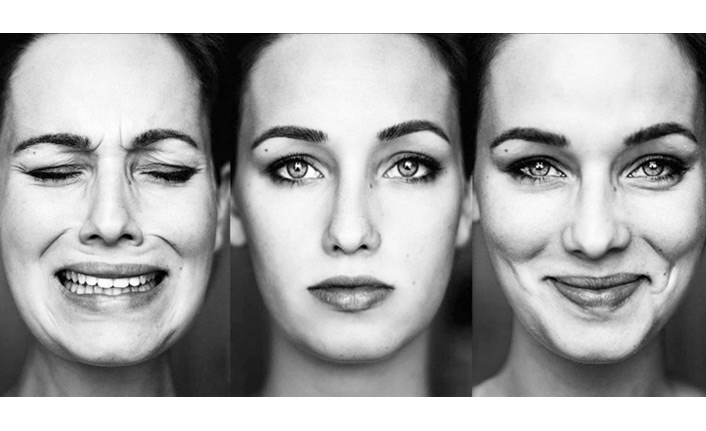Bipolar disorder is a mental health condition that causes significant fluctuations in a person's mood, energy levels, and daily activities. Sometimes, individuals may feel overly energetic, euphoric, and out of control (manic episode), while at other times, they may experience intense depressive feelings. These mood swings can seriously affect daily life, work performance, and social relationships.
Bipolar disorder is not limited to just "feeling sad" or "feeling very happy." This condition arises from a combination of chemical imbalances in the brain, genetic factors, and environmental influences. In some cases, individuals may not even be aware of their condition, which is why accurate diagnosis is extremely important.
Types of Bipolar Disorder
Bipolar disorder is classified into different types based on the severity and duration of the symptoms:
- Bipolar I Disorder: Characterized by at least one manic episode. Depressive episodes may also occur.
- Bipolar II Disorder: Involves severe depressive episodes and hypomanic episodes (a milder form of mania).
- Cyclothymic Disorder: Involves milder but long-term mood fluctuations.
- Other Types: In some individuals, bipolar symptoms may arise due to medication use or other medical conditions.
Symptoms of Bipolar Disorder
The symptoms of bipolar disorder vary depending on the episode. They may not appear with the same intensity in every individual but are generally observed as manic, depressive, or mixed episodes.
Symptoms of the Manic Episode
- Excessive energy and activity
- Decreased need for sleep
- Rapid speech and thought flow
- Overconfidence or grandiose thinking
- Risky behaviors (e.g., excessive spending, impulsive decisions, sexual risks)
From the outside, the person may seem very happy and productive during a manic episode. However, uncontrolled behaviors can lead to serious problems.
Symptoms of the Depressive Episode
- Persistent sadness and hopelessness
- Loss of energy, fatigue
- Feelings of hopelessness and worthlessness
- Difficulty concentrating
- Suicidal thoughts
The depressive episode can completely disconnect a person from daily life. Work performance drops, social relationships suffer, and overall quality of life significantly decreases.
Symptoms of the Mixed Episode
Some individuals may experience both manic and depressive symptoms at the same time. For example, a person may feel overly energetic while simultaneously experiencing deep hopelessness. This situation especially increases the risk of suicide.
Causes of Bipolar Disorder
Although the exact cause of bipolar disorder is not known, it is thought to result from a combination of genetic, biological, and environmental factors.
Genetic Factors
Studies have shown that bipolar disorder is more common among family members. If a first-degree relative has bipolar disorder, the risk of developing the condition is higher.
Biological and Chemical Factors
Imbalances in brain chemicals such as serotonin, dopamine, and norepinephrine play a role in the development of bipolar disorder. Additionally, certain structural differences in the brain may increase susceptibility to the condition.
Environmental Factors
Traumatic events, stress, childhood abuse or losses can trigger bipolar disorder. Furthermore, the use of alcohol or drugs can worsen the symptoms.
How is Bipolar Disorder Diagnosed?
Diagnosing bipolar disorder can take time because the symptoms are often confused with depression or anxiety disorders.
Psychiatric Evaluation
A psychiatrist will thoroughly examine the person's mood changes, past symptoms, and current complaints.
Family History and Past Mental Illnesses
Whether other family members have bipolar disorder is an important indicator in the diagnosis process. The individual’s previous mental health issues are also considered.
Risks of Misdiagnosis
Bipolar disorder is sometimes misdiagnosed as just depression or schizophrenia. Therefore, long-term observation and detailed psychiatric evaluation are essential for an accurate diagnosis.
Treatment Methods for Bipolar Disorder
Medication
- Mood stabilizers: Lithium is one of the most commonly used medications.
- Antidepressants: May be used during depressive episodes.
- Antipsychotics: Particularly effective during manic episodes.
Medication must always be used under the supervision of a doctor, and dosages should never be changed without medical advice.
Psychotherapy Methods
- Cognitive Behavioral Therapy (CBT): Helps change negative thought patterns.
- Family Therapy: Helps family members understand the illness and become involved in the support process.
- Group Therapy: Sharing experiences with others who have similar conditions can ease the recovery process.
Lifestyle Changes
- Maintaining a regular sleep routine
- Stress management
- Healthy diet and exercise
- Avoiding alcohol and drugs
These changes support treatment and can reduce the severity of episodes.



